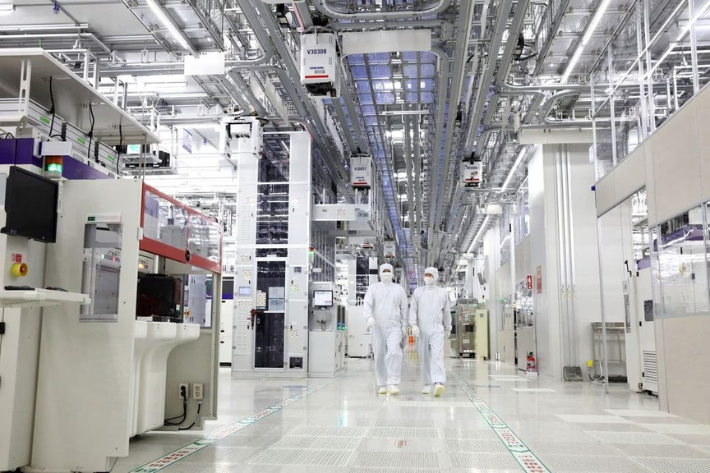China has urged South Korea to not give in to US pressure amid reports that Seoul was considering joining Washington’s chip export curbs targeting Beijing.
Earlier this week, South Korean news agency Yonhap reported that the US had been pressing Seoul, since the second-half of 2023, to implement export curbs targeting chip supplies to China.
Seoul, which has previously resisted the push to join in the measures led by Washington since 2022, was now considering cooperating with the US so as to maintain good relations with its ally, the Yonhap report said.
Also on AF: China Says US TikTok Bill an ‘Act of Bullying’ That Will Backfire
“No matter how much pressure the US piles on South Korea, Seoul should not step back,” China’s state-backed newspaper Global Times said late on Thursday responding to the report.
“Every step taken by Seoul to back down will result in economic losses for South Korean semiconductor makers,” it added.
That’s a concern that the South Korean government is actively assessing too, according to the Yonhap report.
In October last year, the International Monetary Fund (IMF) warned that South Korea could end up as the biggest victim of the potential decoupling between China and the US.
The South Korean economy heavily relies on exports for its economic growth and semiconductors account for the biggest chunk of its trade. Meanwhile, its neighbour China and the United States are Seoul’s biggest trade partners.
China is the world’s largest semiconductor market, importing $349.4 billion worth of chips in 2023. It is also estimated to have spent $30 billion purchasing semiconductor equipment during the year, amid efforts to gain self-sufficiency in chipmaking.
Korea ‘will have to meet some demands’
South Korea is home to the world’s two largest memory chipmakers – Samsung Electronics and SK Hynix, both of whom have invested billions in their fabs in China.
In September last year, the US “indefinitely extended” chip curb waivers to both firms, allowing them to import American chipmaking technology to those Chinese fabs.
But Seoul worries that a change in the status quo will hurt the ‘independence’ and ‘competitiveness’ of South Korean chipmakers.
The Yoon Suk Yeol government is “very cautious” about participating in US export controls and weighing if it should give in to Washington’s demands from “the perspective of national interests,” the Yonhap report said, citing sources.
The South Korean Ministry of Trade, Industry and Energy has been in negotiations with the US Department of Commerce on the matter since last month, Yonhap added.
Even so, Seoul will have to accede to at least some US demands “to a certain extent,” Yonhap said, citing sources.
US pressing other allies too
The Yonhap report also noted how the US had, at first, pressed allies Japan and the Netherlands to expand curbs on the exports of chips and chipmaking equipment to China.
The Netherlands looks to have given in to that pressure. At the start of the year, the Dutch government revoked licences it had earlier granted to its chip tools giant ASML to ship some less-advanced lithography machines to China.
Lithography systems use light to etch the minute circuitry of chips on to silicon wafers and are essential to the chipmaking process. ASML is the world-leading maker of those tools, with a near-monopoly in their production.
While ASML has never shipped its most advanced EUV (extreme ultraviolet) systems to China it will now require licences to export even its less advanced DUV (deep ultraviolet) machinery.
The US also wants ASML to stop the maintenance and servicing of equipment it had already sold to China before Dutch export curbs came to effect in September 2023.
Japan, meanwhile, said last week it was not looking at expanding any curbs for now. US pressure comes at a critical time for Japan’s Fumio Kishida government, that, last year, made a $13-billion bet on its chip industry.
View this post on Instagram
- Vishakha Saxena
Also read:
South Korea Asks US to Review China Curbs in Chips Act Funding
Threat of More Chip Curbs Spurs Warnings on China Innovation
Competition in Chip Industry an ‘All-Out War’, South Korea Says
China Says it Will Strengthen Chip Ties With South Korea
Samsung to Pump $230 Billion Into ‘World’s Largest Chip Base’
How Samsung Exec ‘Stole $200m Chip Secrets’ for Foxconn China Fab
Any Expansion of China Chip Curbs Will Risk Business, ASML Says
Huawei, SMIC Set to Defy US Sanctions With 5nm Chips
Firm Smuggled 53,000 Banned US Chips to China – BusinessKorea
























